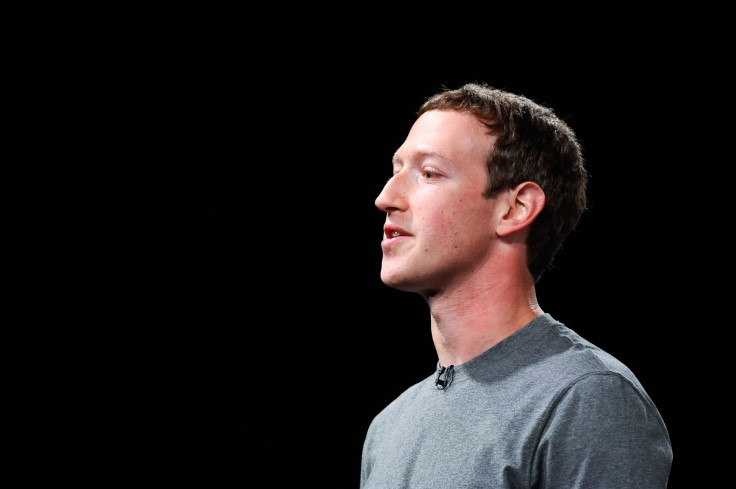Facebook is enabling child abuse - where is Mark Zuckerberg's apology?
Facebook is so powerful he thinks the network is untouchable - but the moral hypocrisy is clearer than ever.

What will it take for Facebook to tackle sexualised images of children on its own site? Certainly not an investigation by BBC journalists who uncovered 100 obscene images and closed groups with names like "hot xxxx schoolgirls" on the social network.
Any normal company would respond with some sense of shame and contrition that they are enabling this vile abuse of children – because that is what it is. They would apologise that innocent photographs of real children have been stolen from the accounts of parents who use the site to be posted in private Facebook groups populated by men obsessed with young girls. But Facebook have done nothing of the kind. Instead, they asked the BBC investigation team to send them the material as a condition for giving an interview with its policy director. When the journalists passed on the images to Facebook – images taken from its own site – the company reported the BBC to the police and pulled the interview.
This staggering brassneck, coupled with a refusal to tackle illegal behaviour on its own virtual doorstep, shows Facebook is out of control. Sure, the company claims today it takes the issue "extremely seriously", but last year, following an earlier BBC investigation into how paedophiles were using the network for secret groups, it said much the same thing – yet the obscene behaviour and imagery perpetuates.
In fact, the latest BBC investigation found that 80% of the 100 images it had tried to report through Facebook's moderation system – including frames of groups where men were discussing swapping child abuse material – were not taken down. The company only acted when the BBC told Facebook it was running with the story.
Following publication of the story, the network's director of policy, Simon Milner told IBTimes UK: "We have carefully reviewed the content referred to us and have now removed all items that were illegal or against our standards. This content is no longer on our platform. It is against the law for anyone to distribute images of child exploitation. When the BBC sent us such images we followed our industry's standard practice and reported them to Ceop [Child Exploitation & Online Protection Centre]. We also reported the child exploitation images that had been shared on our own platform. This matter is now in the hands of the authorities."
Facebook, under its chief executive Mark Zuckerberg, claims to be a socially responsible power for good. Last month Zuckerberg announced a grand – some would say self-aggrandising – 5,000-word manifesto to unite the world, including those left behind by globalisation. It invests in social housing projects in Silicon Valley, virtue signalling to its 1.86bn monthly users – many of whom, like me, will be troubled by these latest revelations.
Yet despite hailing its own power to unite the world as one community, Facebook has a knack for excluding itself from controversy, inaccuracy and illegality of its own facilitating. It was slow to respond to the proliferation of fake news on its own platform. It has repeatedly failed to stamp out sexualised images of children. It pays less than 4% tax on $3.4bn global profits, thumbing its nose at governments who have repeatedly failed to crackdown on its tax avoidance.
This moral hypocrisy really sticks in the craw of ordinary users who might want to boycott Facebook in protest – but who know they will be surrendering their ability to stay connected with family and friends.
Because this is the problem: Facebook would be dead tomorrow if law-abiding, responsible users gave it up. But we won't, because we have become enmeshed in its network; our happy, innocent, legal photographs are there forever. Facebook knows we can't give it up, and that is what makes it so powerful. On tax, fake news and child imagery, it is shameless, and there is nothing we can do about it.
Jane Merrick is a freelance journalist and former political editor of The Independent on Sunday. Follow : @janemerrick23
© Copyright IBTimes 2024. All rights reserved.






